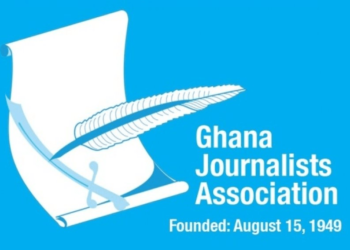Chair of the Mines and Energy Committee of Parliament, Samuel Atta Akyea doubts whether any stakeholder in the power sector will oppose the order given by President Nana Addo Dankwa Akufo-Addo to stop the export of power to neighbouring countries until the power situation in the country is resolved.
He says that the president has the interest of Ghanaians at heart and hence, takes decisions that benefit the people.
He stated that this decision might have consequences, but the sound argument one can make is that the president is thinking about Ghanaians.
Speaking on the mid-day news with Beatrice Adu on 3FM on Wednesday, April 3, he said “The president has the nation at heart, bear in mind that for a good seven years, we have never had this challenge before, it is a record. Now we have a very short period of time if we are not careful because of the power situation we might even change the record of seven years. Our memory as a people, we endured this more for three years but now the few challenges are like hell for everybody.
“The president is the Commander in Chief of the Ghana Armed Forces and everything he does should be tailored to the benefit of the nation so if it is becoming imperative that let us withhold power supply by way of export to Togo and Ivory Coast so that we retain the power for domestic use. I think it is a very sane argument to make that he is thinking about Ghana. It might have consequences but what are the consequences to the wellbeing of the generality of Ghanaians and the bashing he might receive?”
He added “I am sure nobody will fight it. It will be very sad that we are having challenges but because of money some other countries are enjoying what we are expecting.”
Asked when this directive will take effect, he said “That is one of the reasons why we are going to engage stakeholders in the value chain on Saturday, and some of these things we are going to look at it critically. The Committee on Mines and Energy is meeting all the stakeholders and some of these things will come to the fore.”
The order to stop the export of power came at a time the Chief Executive Officer (CEO) of the Independent Power Generators, Ghana (IPGG) Dr Elikplim Kwabla Apetorgbor indicated that Ghanaians should be prioritised in the distribution of electricity.
He wondered why jurisdictions that contribute nothing to Ghana’s economy could be prospering on a cheap resource.
Mr Apetorgbor was replying to the Volta River Authority (VRA) following the Authority’s comment to that he should stop misleading the public regarding his comments that the VRA’s export activities are affecting the supply of energy to the Ghana market.
The VRA indicated that Dr Kwabla Apetorgbor’s claim was erroneous and misleading.
“The attention of the Volta River Authority (VRA) has been drawn to a publication in the electronic media which attempts to suggest that the VRA is not meeting its power supply obligation to the Ghana market due to excessive export of power to neighbouring countries.
“This assertion which is attributed to the Independent Power Generators Ghana, is not only erroneous but misleading,” the statement by the VRA said.
It added “The VRA wishes to state that since 1972, the Authority has been supplying power to neighbouring countries without reneging on its mandate to deliver reliable and affordable power to Ghana; and this the Authority continues to do.
“Also, it is important to mention that the allocation of the power generated from the Akosombo and Kpong hydropower stations is supervised by the Electricity Market Oversight Panel (EMOP) and not the VRA.
“By this arrangement, the allocation always prioritizes the Ghana market, in accordance with government policies to ensure long-term optimization of the nation’s hydro resources”
But in a response to the VRA, Mr Apetorggor said “We are currently in crisis, Ghanaians are sleeping in darkness, companies cannot operate with a guaranteed power supply, there is a shortage in supply, etc., making the available cheap hydrogeneration to Ghanaians, the taxpayer, is supreme and must be of prime consideration, irrespective of your survival concerns.
“Why should jurisdictions that contribute nothing to Ghana’s economy be prospering on a cheap resource? Ghanaians are paying very high tariffs, averaging 14 cents/kWh particularly at peak time, while those neighbouring countries enjoy about half of the tariff. This is not fair to the Ghanaian. Energy Commission will be seen as biased to other participants in the sector, if this export is not stopped immediately for the benefit of the Ghanaian taxpayers. We are aware of situations in the recent past where load shedding is high and at the same time over 200MW of generation capacity is being exported.”







